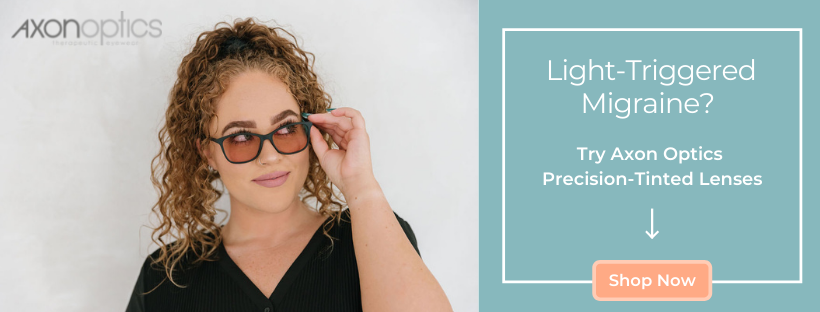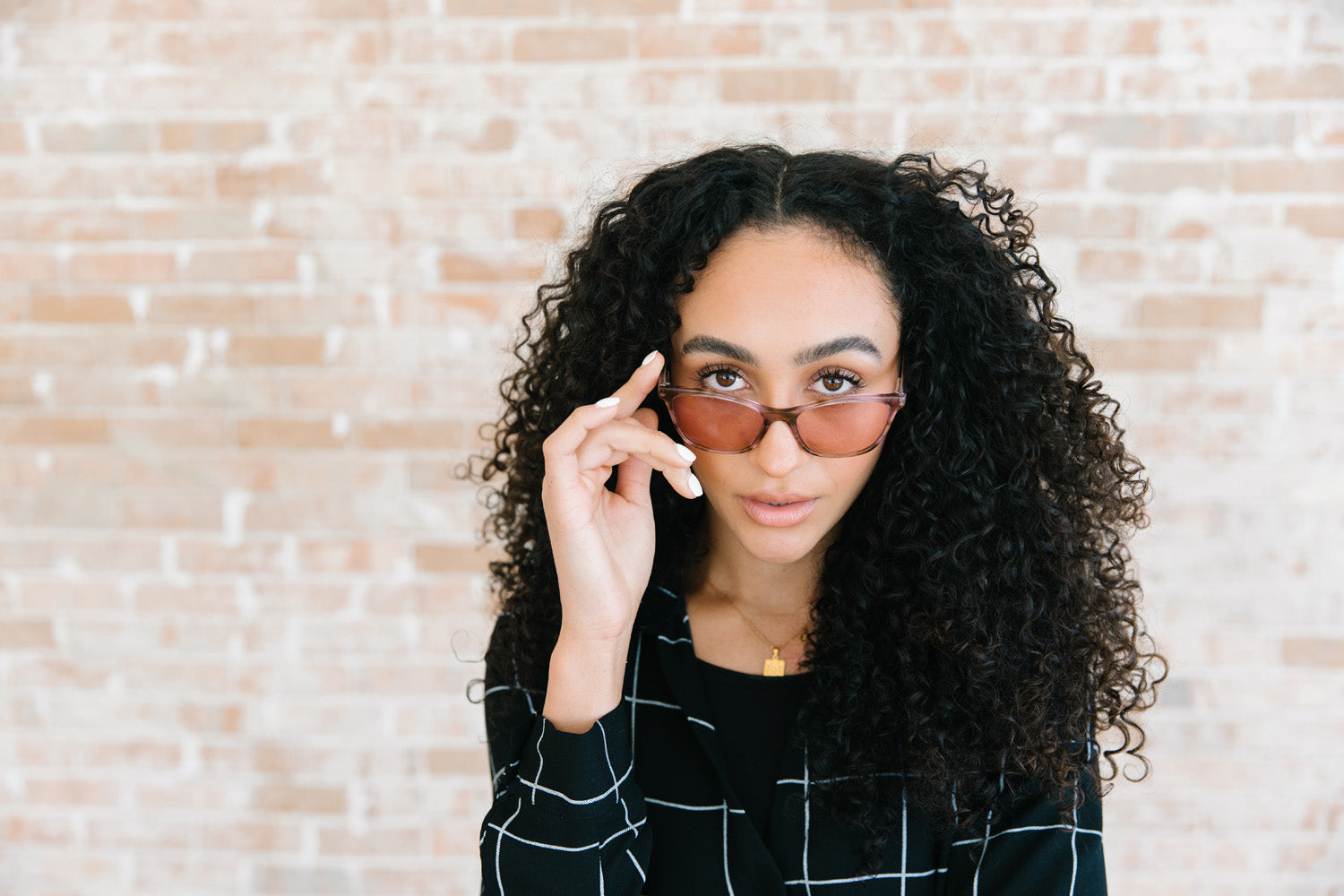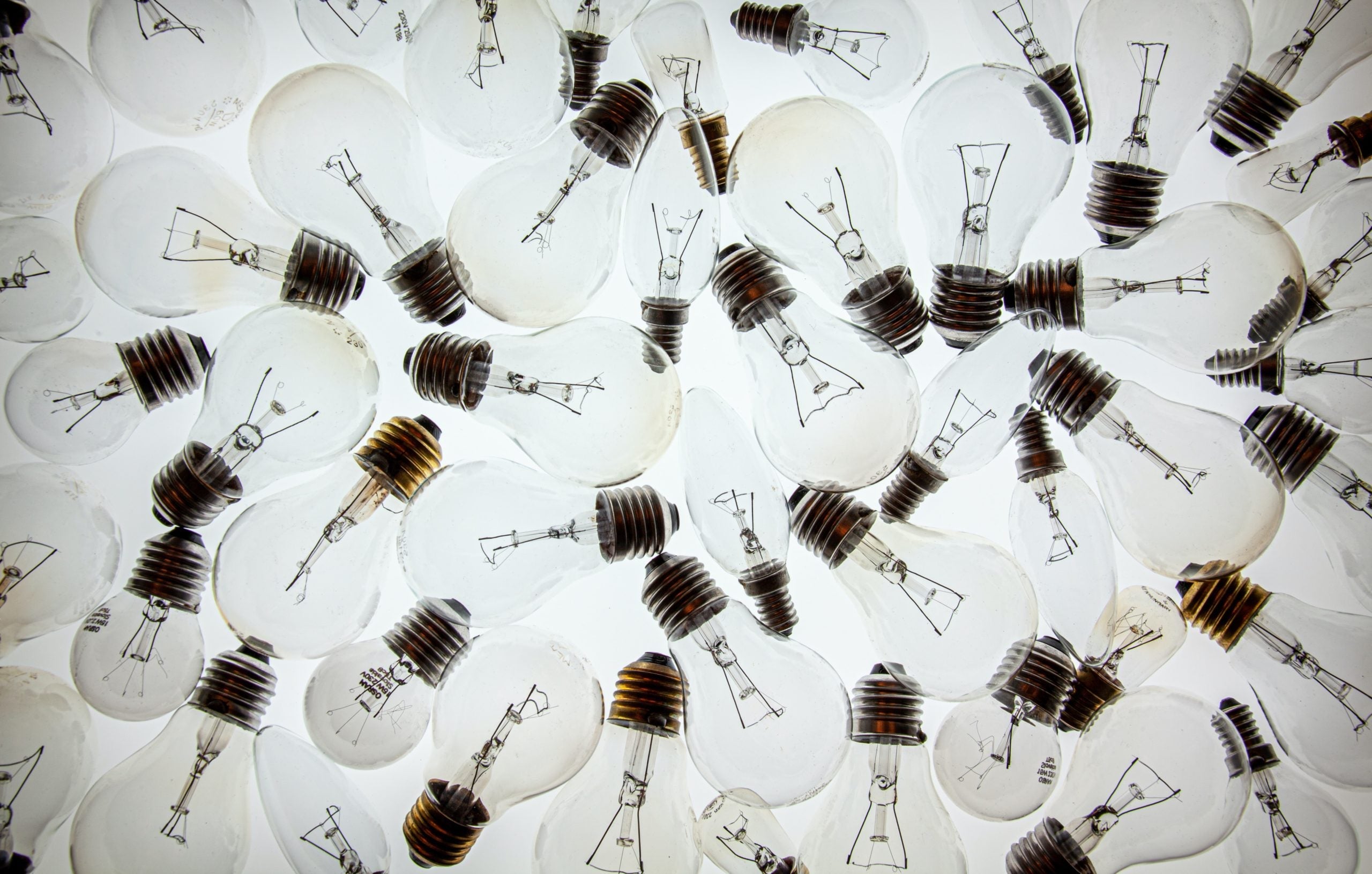When you go outside during the day, you probably wear dark tinted glasses to protect your eyes from the brightness of the sun. But if you’re extremely sensitive to light — a condition known as photophobia — lightly tinted glasses for indoor use are also a must.
When it comes to these lightly tinted glasses, not just any type of tint will do for indoor light sensitivity. Axon Optics is the original pioneer of precision-tinted lenses that block the types of light specifically identified as troublesome for light sensitive people. These lenses can be made in your vision prescription, or with no prescription.
Why Wear Lightly Tinted Glasses for Indoor Use?
There are several reasons why you might want to wear lightly tinted lenses indoors. Here are just a few of them.
Ease Migraine
Light sensitivity is a common migraine trigger. In fact, about 90% of migraine sufferers report light sensitivity. Wearing the right type of tinted lenses for indoors can actually reduce your pain. In fact, in a clinically validated survey of 1,000+ users, Axon Optics lightly tinted lenses helped the majority of people, and their migraine days were reduced by 33%. This is why we often refer to them as migraine glasses.
Reduce Light Sensitivity Symptoms
Light sensitivity, or photophobia, can really interrupt your life. Even light that seems very normal for someone else feels excessively bright to you. Not only could this be a trigger for a headache or migraine, but could cause a host of other symptoms such as:
- Eye strain
- Excessive squinting
- Eye pain
- Inflammation
- Burning sensation
- Excess tear production
- Involuntary blinking
The types of light you’re sensitive to can vary from person to person. But people with photophobia commonly have trouble with fluorescent lights, due to their brightness, hue, and flickering nature.
Lightly tinted lenses for indoor use are engineered by Axon Optics to block these and other painful types of light, providing relief.
Clearer Reading

If you have photophobia or other sensory issues that make it difficult to read dark text on a white page, lightly tinted glasses for indoor use could make reading easier for you. Because the lenses keep bothersome light at bay, they could help you read for longer or focus better on what you’re reading.
And if you’re reading from a computer or device screen, tinted lenses for indoors could help you do so more comfortably by filtering the harsh light back-lit screens usually emit.
Lightly Tinted Glasses for Indoors vs. Sunglasses for Outdoors
When you have light sensitivity or light-triggered migraines, it can be tempting to wear outdoor sunglasses even when you’re inside. In the moment, putting on those dark lenses can bring temporary relief. But doing so over time could actually make your light sensitivity worse.
Have you ever gone to a movie when it’s light outside, and walked out of the theater into the sun? That can be a shock for anyone after sitting in a dark theater for 2 hours, but for people with photophobia, it’s downright painful.
This happens because your eyes have adapted to the dark conditions. When you wear sunglasses indoors to avoid painful light, you’re actually adapting them to darkness. So when you inevitably go into brighter conditions — ouch! It’s very important that your glasses block only the right type and amount of light to bring relief without causing dark adaptation.
Alternative Tints for Different Uses
To illustrate the fact that tint matters both indoors and out, there are a number of other tints with anecdotal evidence for different uses. For example, some near-sighted people swear that brown colored lenses help them see contrast. People who love outdoor water sports or skiing often wear blue or purple tinted lenses, said to help with sunlight reflected of snow and water. Others say that yellow lenses help with night driving.
As useful as these tints can be, however, none of them are meant for light sensitivity the way Axon Optics lenses are.
“I have tried multiple brands of
glasses. So far, these are the best made comfortable, effective and helpful in indoor lighting situations of the 3 brands I’ve tried. (I also really like how they look on me.)” -Elizabeth M. from New York
Not All Lightly Tinted Glasses Are the Same
Many assume that all light sensitivity glasses are the same, but nothing could be further from the truth. In fact, a study from the University of Utah confirms this.
Axon Optics lenses are different because:
- Our stylish rosy hue doesn’t look like you’re wearing dark sunglasses indoors
- Our lenses block the right type of light in the right amount — others may be too dark, or not precise enough to block the uncomfortable light as well as ours
- Axon lenses let in 80% more good light than other indoor lenses
- We’re the pioneers — founded by a neuro-ophthalmologist and leading scientist in the field
- 18 premium coatings on each side of the lens provide protection from UV rays, smudges, glare, scratches, and shattering
When it comes to lightly tinted glasses for indoor use, Axon Optics sets the gold standard. We also offer a 60-day money-back return policy and free shipping for US orders, so trying them is risk free.






